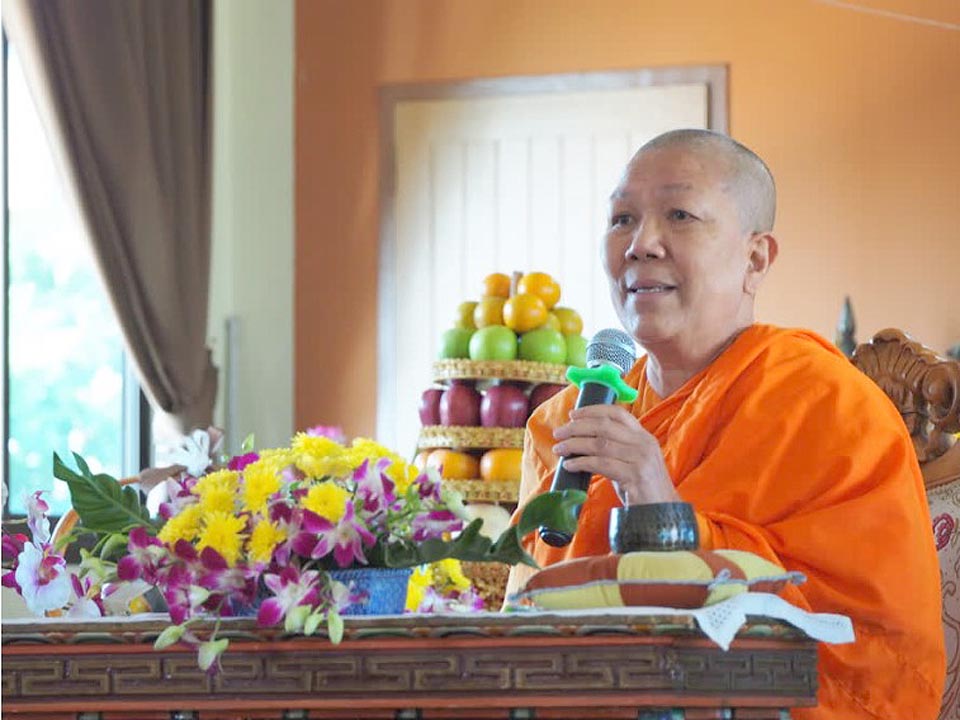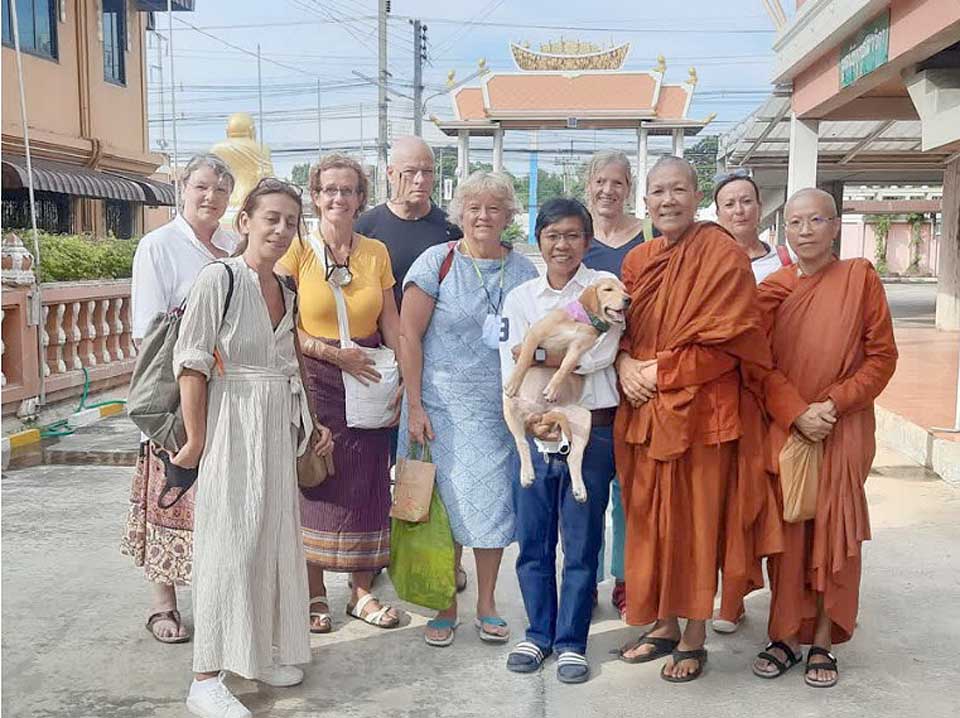
Buddhist monks in Thailand have always been male, while women and people identifying as other genders are normally barred from being ordained. Wishing to see all interested genders in yellow robes, the Venerable Dhammanada, the first female monk in Thailand, has, over at least a decade, headed a movement that has helped pave the way to ordination for all believers.
Dhammanada, prior to being ordained, was already living an incredibly happy and successful personal life. Holding a Ph.D., she was a lecturer at one of the Kingdom’s most prestigious universities, Thammasat, and a mother of three, but one day thought, “How long do I have to do this” as she put on her makeup to go to work.
Seeing that religion could help answer her question, she wanted to be ordained, but not as a typical Buddhist nun as women in Thailand can become, but as a ‘Bhikkhuni,’ who have a stature similar to monks.
On February 28, 2003, Chatsumarn Kabilsingh, her pre-ordained name, chose to fly to Sri Lanka to undergo a full monastic ordination as a Bhikkhuni of the Theravada faith, as the kingdom did not allow monks to ordain those of the female gender.
For an individual to become a Buddhist monk, the novice must undergo strict Buddhism Ordination processes. However, ordination for women follows an even more stringent order, such as having to hold much higher precepts than men; the female novice must be ordained by the Bhikkhuni Sangha of the female community and then by the male community. There was no Bhikkhuni in Thailand, as Thai Bhikkhus in the kingdom did not think it was appropriate for women to be ordained; thus, the Sangha Supreme Council of Thailand forbade monks to give ordination to women.

“So any woman who seeks Theravada ordination has to go abroad either to India or Sri Lanka,” Dhammanada explained.
After returning to Thailand, she established Songdhammakalyani Monastery in Nakon Pathom province; it is still the only temple in Thailand where there are bhikkhunis. It welcomes all individuals, regardless of gender and nationality, with the ability to gain the utmost access to Buddhism.
She also continued to spread the teachings of the Buddha to anyone seeking enlightenment, presenting herself as a woman who had become a monk, and saying “Why can’t anyone join the religion since the core of Buddhism is focusing on the mind, regardless of background or gender, and the purpose of ordination is to forsake everything.” This has been a major motivator for her to continue her work to maintain a place for everyone.
Now at the age of 76, and set to complete her second decade after having fully committed her life to Buddhism as a ‘Bikkhuni,’ her efforts have helped increase the number of female monks in Thailand, marking another milestone in women’s rights and strengthening equality in Thailand.
In celebrating International Women’s Day, a global day acknowledging the social, economic, cultural, and political achievements of women, which falls on March 8 of each year, NBT World cherishes the work of all women who have contributed to the betterment of society at large. (NNT)





